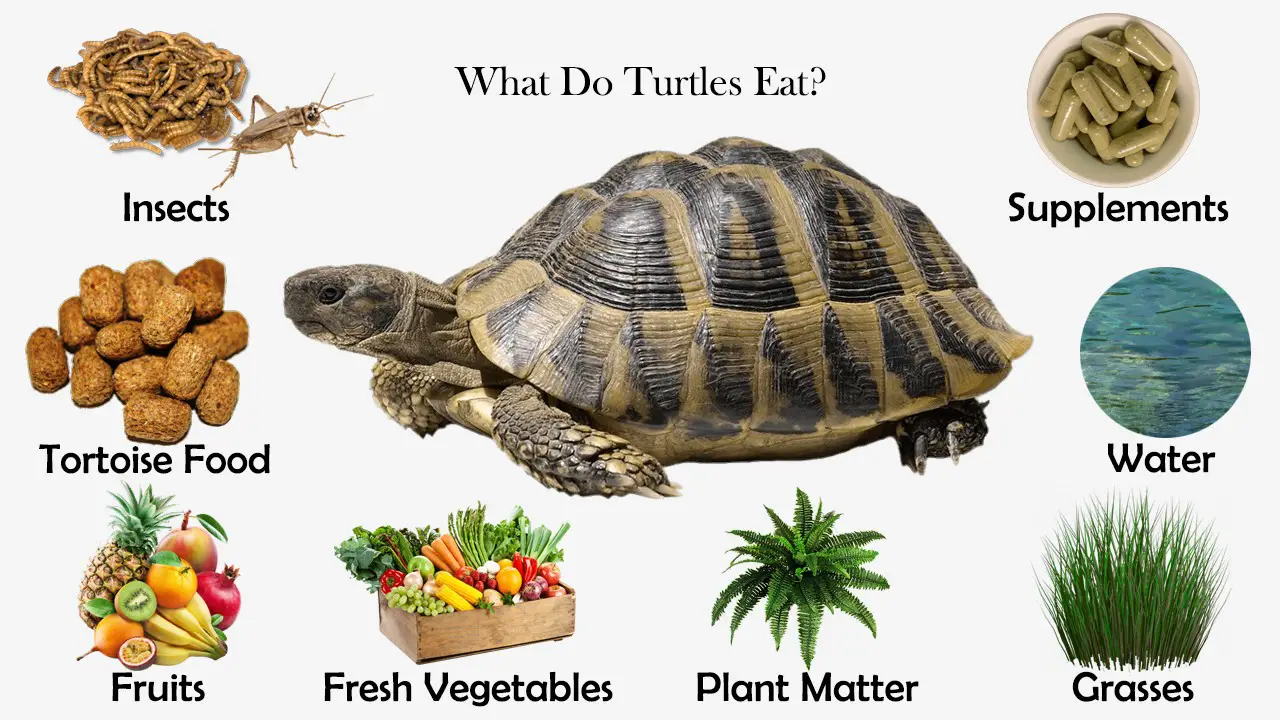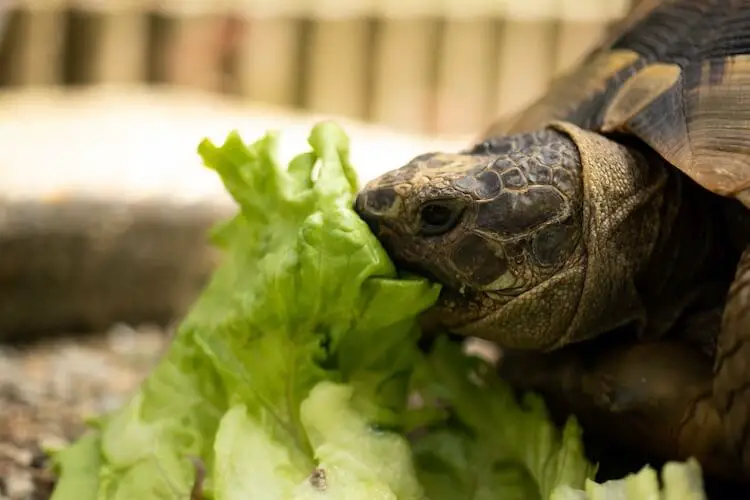Are you a proud turtle owner looking to provide the best nutrition for your shelled companion? Understanding what food turtles can eat is crucial for their overall health and well-being. In this article, we will explore a wide range of food options suitable for turtles, ensuring they receive a balanced diet that meets their nutritional requirements.

Understanding a Turtle’s Diet
Turtles are omnivorous creatures, meaning they consume both plant and animal matter. Their diet varies depending on their species, age, and habitat. It is essential to replicate their natural diet as closely as possible to ensure their optimal health.
Plant-Based Foods for Turtles
- Leafy Greens: Leafy greens such as kale, collard greens, and dandelion greens are excellent sources of vitamins and minerals for turtles. These should make up a significant portion of their diet.
- Vegetables: Turtles can also enjoy a variety of vegetables like carrots, squash, and bell peppers. These provide additional nutrients and add variety to their meals.
- Fruits: While fruits should be given in moderation due to their high sugar content, turtles can enjoy occasional treats like strawberries, melons, and bananas.
Animal-Based Foods for Turtles
- Insects: Insects like crickets, mealworms, and earthworms are a great source of protein for turtles. These can be offered as live prey or in dried form.
- Fish: Some turtle species, particularly aquatic ones, can benefit from small amounts of fish in their diet. Fish like minnows or feeder fish can be included occasionally.
- Commercial Turtle Pellets: High-quality commercial turtle pellets are specially formulated to provide a balanced diet. These pellets should be a staple part of a turtle’s diet.
Feeding Guidelines for Turtles
- Portion Control: It is important to feed turtles an appropriate amount of food based on their size and age. Overfeeding can lead to obesity and other health issues.
- Variety is Key: Offering a diverse range of foods ensures that turtles receive all the necessary nutrients. Rotate between different vegetables, fruits, and protein sources.
- Supplements: Turtles may require additional calcium and vitamin D3 supplements to support their shell and bone health. Consult a veterinarian for proper dosage and administration.
Frequently Asked Questions
Q1: Can turtles eat meat?
A1: Yes, turtles can eat meat. However, it should be offered in moderation and as part of a balanced diet. Insects and small amounts of fish are suitable sources of protein for turtles.
Q2: Can turtles eat lettuce?
A2: While lettuce is not toxic to turtles, it lacks significant nutritional value. It is best to opt for nutrient-rich leafy greens like kale or collard greens instead.
Q3: Can turtles eat fruits every day?
A3: Fruits should be given in moderation due to their high sugar content. Offering fruits as occasional treats is recommended to maintain a balanced diet for turtles.
Q4: Can turtles eat cat or dog food?
A4: No, turtles should not be fed cat or dog food. These foods are not formulated to meet the specific nutritional needs of turtles and may lead to health issues.
Q5: Can turtles eat bread?
A5: Bread is not suitable for turtles as it lacks essential nutrients and can cause digestive problems. Stick to a diet consisting of turtle-friendly foods for their well-being.
In conclusion, providing a well-rounded diet is crucial for the health and happiness of your turtle. By offering a variety of plant-based and animal-based foods, you can ensure that your shelled friend receives all the necessary nutrients. Remember to consult a veterinarian for specific dietary recommendations based on your turtle’s species and individual needs.

